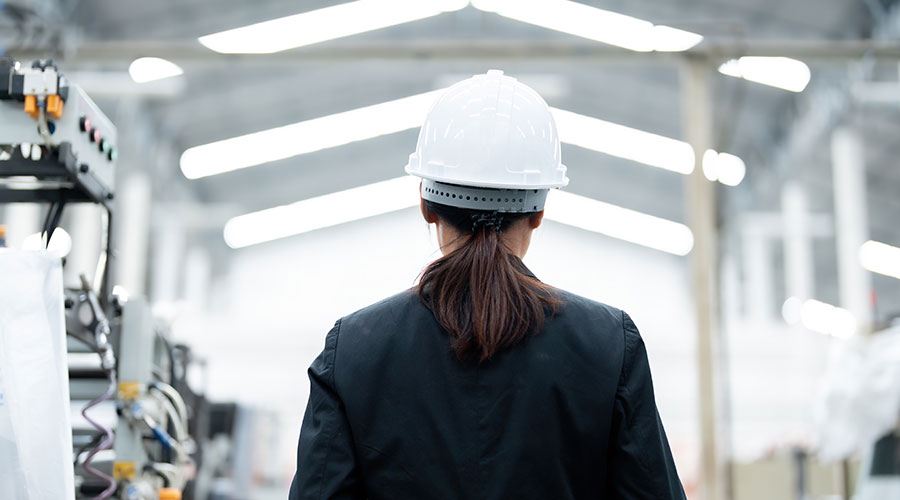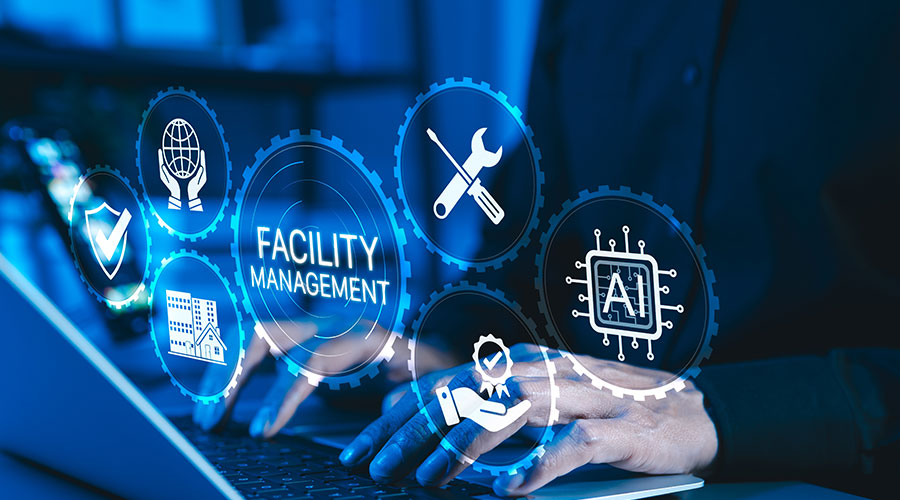How Women Can Advance in Facilities Management
Facilities management has evolved in recent years, and with this knowledge leads opportunities for women to advance in their careers.
By Maria Ruiz, Contributing Writer
As an industry, facilities management continues to evolve and create new opportunities for women to not only lead, but advance. Throughout my career the evolution has transformed what once was a focus on building maintenance, to now strategically encompass sustainability, technology and workplace experience design.
As a woman navigating career paths in this field, I have used what I believe have been effective and efficient approaches to advancement.
As an active member of the International Facilities Management Association (IFMA) using the knowledge libraries, training online and instructor led are ways to expand your skill portfolio. Although technical knowledge remains key, facilities leaders need broader capabilities. As a current candidate of the CFM (Certified Facility Manager) certification this can assist facilities professionals to solidify their career trajectory while developing key business acumen and skills like financial management, sustainability and team leadership.
It is very important to combine technical expertise with strategic thinking. This allows facilities professionals to remain, sustain and advance both their technical and business skills positioning them for advanced and senior leadership roles. In addition, having a strong background in business management, sustainability, technology and of course, the foundational skilled trades, can bring extensive and valuable perspectives that organizations increasingly value.
During one of my office decommission projects, I observed that buildings are being altered and retrofitted with more IoT sensors, automation systems like BMS and BIS analytic platforms. This creates a leverage of technology as a career accelerator as well for facilities professionals, especially women in the field to take advantage of. The ability to create a technology fluency can create endless possibilities for significant advancement opportunities as technology continues to increase at lighting speed and is projected to continue in the next few years and beyond. This creates a very visible and tangible skill set that is very appealing to organizations wanting to add value and strategy to their technology stack and leadership pedigree.
Another very important mission that I have set on is ensuring and positioning facilities as a strategic function. Our industry is, of course, operational in many ways, but the evolution from operational to strategic is one way to stay ahead. One of the ways I have done this is the importance of communicating facilities impact in business terms. For example, in decommissioning offices I partner with a green vendor that tracks how much furniture, furnishings and or equipment we are able to donate, recycle and reuse and this positions us as a partner in the sustainability efforts and compliance metrics in reducing both our carbon footprint as well as reducing costs for the organization.
Being part of IFMA and participating in the NFMT expos, and other networking events allows facilities professionals to truly cultivate broad professional networks. It is worth noting that professional connections consistently correlate with career advancement. IFMA and BOMA (Building Owners and Manager Association) provide valuable opportunities that can advance careers at a consistent pace. I highly recommend building strong cross-functional relationships within organizations as well as building strong connections with departments like IT, finance and human resources for better perspective and visibility.
One final strategy that can also advance women as a differentiator is the emergence in specialized areas. One of those areas being sustainability and occupant wellbeing. Having a solid expertise and knowledge base in areas like energy management, indoor air quality and green building certification will often lead to advancement and specialized opportunities especially since post pandemic there has been a demand for professionals who understand the flexible work environments and activity based collaborative spaces emerging.
For women who are building careers in facilities management, these strategies can create a strong foundation for advancement in a rapidly evolving field. As facilities management continues to develop and evolve, women in the field willing and able to adapt to these changes can see their careers in facilities leadership roles and advancement skyrocket.
Maria Ruiz is a Facilities Operations Manager at UNICEF USA with 15+ years of cross-sector expertise. Overseeing multiple national offices, she applies Lean Six Sigma methodologies to create sustainable, efficient workspaces supporting humanitarian missions. Her writing champions women in facilities management by blending technical knowledge with practical insights that empower professionals in this traditionally male-dominated field. Committed to work-life balance, Maria recharges by training in Brazilian Jiu-Jitsu with her son—finding that the discipline and focus required on the mat enhances her leadership approach in facilities management.
Related Topics:












